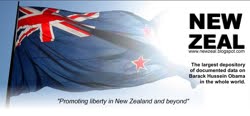skip to main |
skip to sidebar
Yesterday, the web site Gateway Pundit ran a story about a British owned company that makes the popular brand of Rum called Captain Morgan and how this company received $2.7 Billion dollars from the Troubled Asset Relief Program (TARP). I know another side of this story that wasn’t reported and that is the purpose of this commentary. The underlying principle of smart business has always been to make a profit using other people’s money so no one can blame the owners of Captain Morgan, Diageo Plc for going along with the idea. The second principle of smart business is to utilize the cheapest labor available to produce your products so when government conspires to provide business with a cheap labor pool and uses that as an incentive to attract business the incidental fallout is felt in many areas.
Gateway Pundit begins by quoting a story from a 2009 report in the investment newspaper Bloomberg about how the Federal government succeeded in convincing Diageo Plc to relocate its Captain Morgan distillery from the US territory of Puerto Rico to another US territory on the island of St. Croiz in the Virgin Islands. Not only did our Congress approve of paying for the move but gave them a new facility and billions of dollars of tax incentives.
Bailout of U.S. Banks Gives British Rum a $2.7 Billion Benefit
By Ryan J. Donmoyer - June 26, 2009 00:01 EDT
June 26 (Bloomberg) -- In June 2008, U.S. Virgin Islands Governor John deJongh Jr. agreed to give London-based Diageo Plc billions of dollars in tax incentives to move its production of Captain Morgan rum from one U.S. island -- Puerto Rico -- to another, namely St. Croix.
DeJongh says he had no idea his deal would help make the world’s largest liquor distiller the most unlikely beneficiary of the emergency Troubled Asset Relief Program approved by Congress just four months later.
Today, as two 56-foot-high (17-meter-high) tanks for holding fermenting molasses will soon rise from the ground on the Caribbean island of St. Croix, the extent to which dozens of nonbank companies benefited from last October’s emergency financial rescue plan is just beginning to come to light.
Then Gateway Pundit went further into the subject and quoted another story that appeared in The LA Times also in 2009 and while both stories contain a wealth of detail on the financial arrangement there is one critical point that was overlooked. That point is that all of the officials that made the arrangements and approvals worked for the US government and the hidden benefit to the willing recipient of our generosity was a larger pool of low income workers.
Captain Morgan may set sail for tax benefits
The rum brand's parent firm, Diageo, would receive advantages worth $2.7 billion under a deal to move production to the Virgin Islands from Puerto Rico.
September 02, 2009|Tom Hamburger and Peter Wallsten
WASHINGTON — Yo ho ho and a bottle of rum.
With little fanfare, a deal is moving forward to provide billions in tax dollars and tax breaks to an unlikely beneficiary -- the giant British liquor producer that makes Captain Morgan rum.
Under the agreement, Diageo in London will receive tax credits and other benefits worth $2.7 billion over 30 years, including the $165-million cost of building a state-of-the-art distillery on the island of St. Croix in the Virgin Islands, a U.S. territory.
Virgin Islands officials say the arrangement complies with the letter and spirit of tax law and will help the islands' sagging economy.
Captain Morgan is now produced in the U.S. commonwealth of Puerto Rico, and critics say the Virgin Islands' subsidy for the new distillery, along with the other benefits, is so generous that it practically guarantees a profit on every gallon of rum produced there by Diageo, the biggest distilled spirits maker in the world.
"The U.S. taxpayer is basically being asked to line the pockets of the world's largest liquor producer," said Steve Ellis, vice president of Taxpayers for Common Sense, a nonpartisan watchdog organization.
When considering the demographics of all of the locations involved it seems that a convincing argument could have been made that would not have involved shelling out $2.7 Billion dollars of US funds that we eventually had to borrow from China in the first place. The previous distillery and bottling plant on Puerto Rico operated by Captain Morgan rum was likely experiencing higher operating costs due to the rising per capita income of $19,600. Puerto Rico, an island of 3,515 sq mi, with a population of 3,725,789 was running out of cheap labor. So why would a British company locate a major facility on US territory instead of on one of the other British island territories nearby? Again, the demographics tell the story. The British Virgin Islands, 59 square miles, has a population 27,000. The economy of the British Virgin Islands is one of the most prosperous in the Caribbean. According to the CIA World Factbook, in 2004 the Territory had the 12th highest GDP per capita in the world at $38,500. And, then there is Bermuda, 20.6 square miles, population 67,837. But according to the CIA World Factbook, Bermuda has the 4th highest per capita income in the world of $69,900, so neither of these places would be profitable to locate a plant that depended on low income labor.
I have personally visited the island of St. Thomas in the US Virgin Islands on two occasions. The capital city of Charlotte Amalie, is a Duty Free port and a popular destination for cruise ships. High quality goods manufactured in foreign countries can be purchased there for substantial discounts because there is no import duty fees imposed by U.S. Customs. At the time I was there a store called Little Switzerland was the world’s largest seller of Rolex watches. But there was also a dark side to this island paradise. Besides the duty-free shops the principle businesses are the hotel resorts scattered around the island’s crystal-clear waters but in between there is an alarming amount of squalor and poverty. Traveling by hotel taxis from the resorts to the city we passed by miles and miles of poor roads lined with hundreds of shacks with rusted corrugated metal walls and roofs that were obviously the homes of the thousands of low paid workers.
Now, as a retired airline employee, I have also traveled to the island of Bermuda which happens to be a British overseas territory and another island paradise. But the comparison between Bermuda and the island of St. Thomas ends with the beautiful beaches and sparkling water. While both islands consist of a number of different towns and cities, overall, Bermuda has the appearance of being a clean, well-run community of upper middle-class residents while St. Thomas, outside of the resort areas, appears more like an impoverished ghetto of welfare recipients. The per capita incomes of both islands confirm their physical appearance. St. Thomas, 31.24 square miles, population 51,181 and St. Croix, 82.88 square miles, population 60,000 have a combined per capita income of only $13,139. I have never traveled to the sister island of St. Croix but I did hear there is far less commercial development there than is found on St. Thomas. Apart from benefiting the local economy a convincing argument could have been made just on the basis of the available low income work force but our government under the direction of Barack Hussein Obama decided to do the only thing it knows how - throw away a ton of money.
Using cheap labor as an incentive to attract business is also used by a few stateside governments, as well. A few years ago the governor of Kentucky actually bragged about the low income labor force that Kentucky had to offer. He mentioned that fact after convincing a company to relocate here. People willing to work for low income wages usually come from places that have poor education. So the ability to create the former often depends on the later. That would be another subject all its own.




















No comments:
Post a Comment
No foreign language comments allowed. English only. If you cannot access the comments window send me an email at Oldironsides@fuse.net.